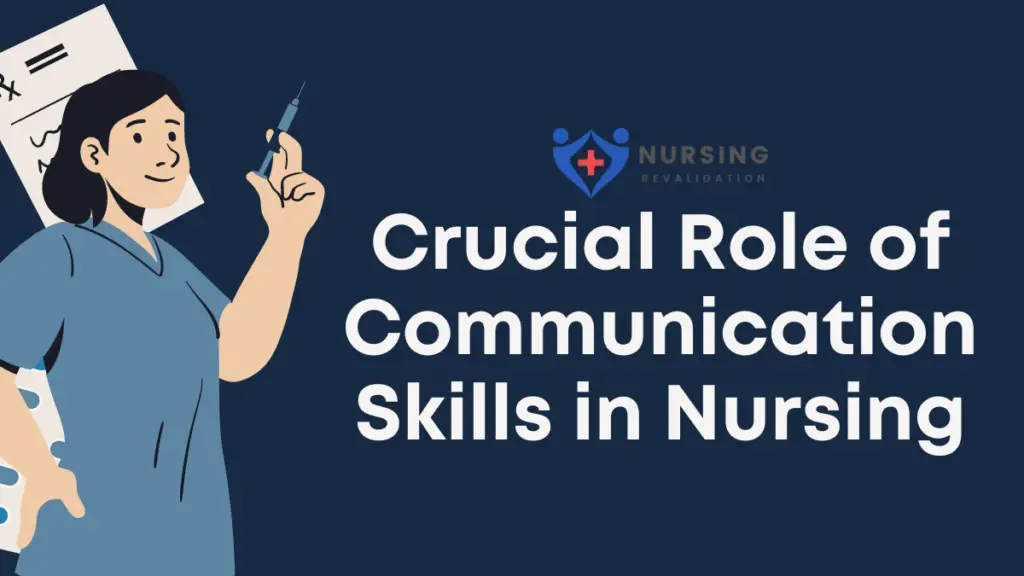Effective communication lies at the heart of quality nursing care. From interacting with patients and their families to collaborating with healthcare teams, nurses rely on strong communication skills to ensure optimal outcomes. In this comprehensive guide, we delve into the importance of communication skills in nursing practice, exploring its impact on patient care, professional relationships, and overall healthcare delivery.
Understanding the Essence of Communication in Nursing
Communication Skills: The Foundation of Patient-Centered Care
In nursing, communication extends beyond verbal exchanges; it encompasses listening, empathy, and non-verbal cues. Nurses who master these skills create a therapeutic environment where patients feel understood and respected.
Building Trust and Rapport
Establishing trust is paramount in nursing practice. Effective communication fosters a sense of trust between nurses and patients, leading to improved patient satisfaction and compliance with treatment plans.
Table: Impact of Communication Skills on Patient Outcomes
| Patient Outcome | Influence of Effective Communication |
|---|---|
| Patient Satisfaction | Strong communication correlates with higher levels of patient satisfaction and engagement in their care. |
| Medication Adherence | Clear communication about medication instructions and potential side effects improves patient adherence to treatment plans. |
| Clinical Outcomes | Effective communication among healthcare providers contributes to improved clinical outcomes and reduced medical errors. |
| Care Coordination | Seamless communication enhances care coordination between different healthcare teams, ensuring continuity and quality of care. |
The Impact of Communication on Patient Outcomes
Enhanced Patient Safety
Clear and concise communication among healthcare providers reduces the risk of medical errors and adverse events. Nurses who effectively communicate critical information contribute to a safer healthcare environment.
Improved Patient Satisfaction
Positive communication experiences correlate with higher levels of patient satisfaction. When nurses communicate empathetically and involve patients in decision-making, they enhance the overall care experience.
Communication Skills: Key to Interprofessional Collaboration
Collaborative Care Teams
In today’s healthcare landscape, collaboration among interdisciplinary teams is essential for delivering comprehensive patient care. Nurses proficient in communication facilitate cohesive teamwork, leading to better care coordination and outcomes.
Effective Handoffs and Transitions
Smooth transitions of care rely on effective communication during handoffs between nurses and other healthcare providers. Clear communication ensures continuity of care and minimizes errors during patient transfers.
Nurturing Communication Skills in Nursing Education
Integration into Curriculum
Nursing programs must prioritize communication skill development alongside clinical competencies. Incorporating communication training early in the curriculum cultivates well-rounded nurses equipped for real-world practice.
Simulation-Based Learning
Simulation exercises offer a safe environment for nursing students to practice communication skills and receive constructive feedback. These immersive experiences bridge the gap between theory and practice, preparing students for diverse communication scenarios.
The Role of Continuing Education in Strengthening Communication
Ongoing Training and Development
Nurses should engage in continuous learning opportunities to refine their communication skills throughout their careers. Workshops, seminars, and online courses provide avenues for skill enhancement and professional growth.
Utilizing Feedback Mechanisms
Seeking feedback from peers, mentors, and patients allows nurses to identify areas for improvement in their communication practices. Constructive feedback serves as a catalyst for ongoing self-reflection and skill refinement.
Conclusion
Effective communication skills are indispensable for nursing professionals across all practice settings. From establishing trust with patients to fostering collaboration within healthcare teams, communication serves as a cornerstone of quality care delivery. By prioritizing communication skill development in education and continuing professional development, nurses can optimize patient outcomes and elevate the standard of care.

